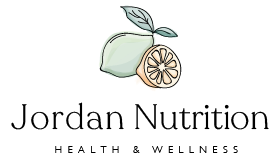Tips for Surviving the First Trimester - What Every Women Should Know
The first trimester can be a challenging time. Speaking from personal experience (currently pregnant with baby number 2), the first few months of my first pregnancy were a breeze. The second time around not so much. I experienced a deluge of nausea, headaches, tiredness and general crankiness up until week 14. Even now that I’m well into the second trimester I’m still not feeling myself – that may also be related to looking after a toddler!
Another reason the first trimester can be hard is that you may not want to share your news with others. This makes it an especially lonely time where it may be harder to reach out for help. Just remember it does get easier.
Even if you don’t experience the classic symptoms of morning sickness, there are some general tips that I wanted to share to help your pregnancy get off to a smooth start.
Find A Quality Prenatal Supplement (that you can tolerate)
It is important to find a quality prenatal (ideally start taking it a few months before you get pregnant). I recommend buying a small size bottle to start with and see if you are able to tolerate them. You may need to switch to a chewy gummy or powder for the first few months if you experience nausea and/or vomiting, something is better than nothing. There are so many brands out there it can be a bit bewildering. For more information on my top prenatal picks check out my blog article. ‘Prenatal Supplements: My Top Picks’
Have A Snack On Hand At All Times
It could just be me, but pregnancy can really mess with your hunger and appetite signals. Most women experience low appetite in the first trimester. This is then flipped on its head for the remainder of the pregnancy when you are most likely to feel hungry all the time! Regardless of where you are in your pregnancy, I recommend having some healthy snacks with you at all times (ie. in your nightstand, in the fridge or in your handbag when out and about). This will help to keep your blood sugar levels a bit more stable and prevent binge eating at mealtimes (plus, extra nutrients for the baby).
Some healthy options could include; a large rice cake with scoop of avocado, an apple with 1 tbsp of natural peanut butter, a piece of grilled pesto chicken with some cherry tomatoes and cucumber, a hard-boiled egg with some whole wheat crackers or some kale chips and nuts.
Drink Up
Fluid requirements go up a lot during pregnancy. Try to get in around 100 fluid ounces per day. And it doesn’t have to be plain water. Some healthy beverages include, infused water (add cucumber, lime, blueberries, orange, kiwi, or ginger slices), unsweetened sparkling water and iced tea, coffee (up to 16 oz per day of caffeinated), coconut water, whole or skimmed milk, plain kefir, bone broth.
Arm Yourself With Anti-Nausea Remedies
There are a few theories behind why women experience nausea in the first trimester. The front-running theory is all about hormones, specifically beta-hCG and estradiol. These ramp up significantly in early pregnancy. Beta-hCG will be particularly high with twins. The other theory is it is an evolutionary mechanism to help women avoid potentially dangerous food. Regardless of the cause, nausea is miserable.
Ginger is the most well studied natural anti-nausea remedy during pregnancy. You can take it as a tea, crystallized or supplement (250mg every 6 hrs). While ginger ale may make you feel a bit better, it generally doesn’t have enough ginger to make a big difference. Vitamin B6 (choose the active form: pyridoxal-5’-phosphate) can also be taken in addition to ginger (10-25mg every 8 hrs). Not a fan of taking a supplement? Preggo Pop Drops also contain some B6.
Eat Small, Frequent Meals
This is particularly important if you are suffering from morning sickness. Eat every 1-2 hours to avoid having an empty stomach. Choose high protein, bland, odorless foods. Plain crackers with some peanut butter, pretzels or toast. For some reason, I had a craving for Marmite and toast (this is a salty British food spread made from yeast extract, you either love it or you hate it!)
Consider Alternative Therapies
Other than changing up your diet and taking some extra supplements you can also turn to alternative therapies for some relief. Acupressure and acupuncture are effective for some women. You can purchase wrist bands that activate a specific point on your wrist called P6 (Sea-Band). Acupuncture can also work wonders for some people by balancing hormonal levels and generally aiding relaxation. If the natural therapies are not cutting it, speak to your healthcare providers about possible medication options.
Move Slowly In The Morning
It may be too early in your pregnancy to experience sharp changes in your blood pressure, however, it is always best to move slowly in the mornings to prevent feeling dizzy. Try to have a large glass of plain water when you first wake up and avoid extreme temperatures in the shower.
Keep Up Your Exercise Plan
Many women are concerned about exercising during pregnancy. While you don’t want to push it too hard, we know that oxygen delivery to the baby remains unchanged during exercise and benefits fetal brain and nervous system development. It has also been shown to reduce the risk of children developing type 2 diabetes and obesity later in life. The amount of exercise you do in the early days will vary greatly based on your energy levels, preferences and fitness levels. In general, I recommend at least 30 minutes of moderate exercise per day including strength and cardio. Getting into the habit of exercising regularly in those first few months will really pay off when you might have to slow down in the second and third trimesters.
Good Luck!


